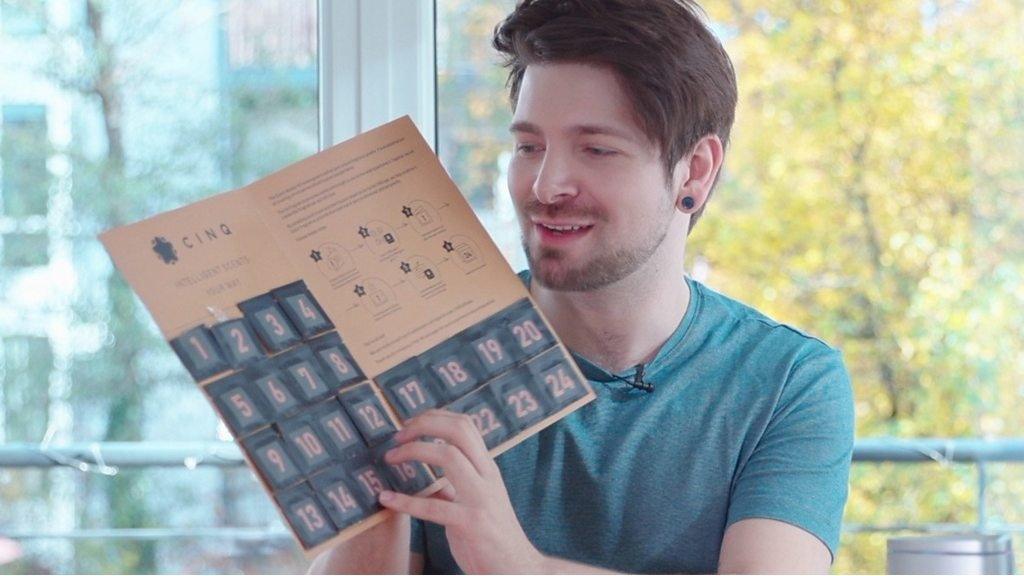CES 2019: LG's roll-up TV to be released to public
- Published
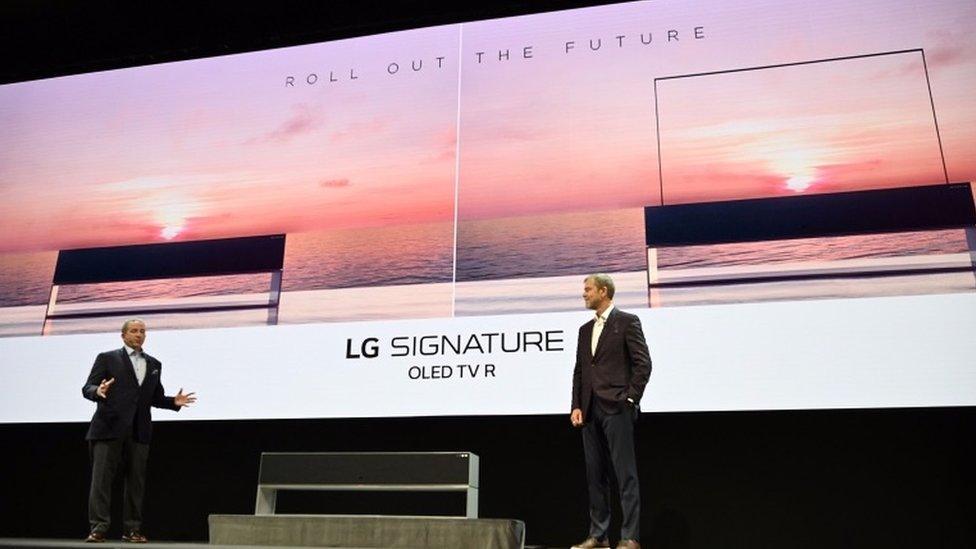
LG's screen folds out when in use and then retracts
LG has revealed a consumer version of its roll-up TV set at the CES trade show in Las Vegas.
The Signature OLED TV R is built on a concept unveiled last year, in which the screen retracts into a base when not in use so it is less obtrusive.
LG plans to sell the device in the US before the end of 2019, but has yet to reveal the month or price.
Experts say the technology is unlikely to become a mass-market proposition for many years to come.
"It's a 4K set rather than 8K, so you could argue there's a compromise there - but otherwise this is a very high-end design that is going to be very costly," commented Jack Wetherill from the consultancy Futuresource.
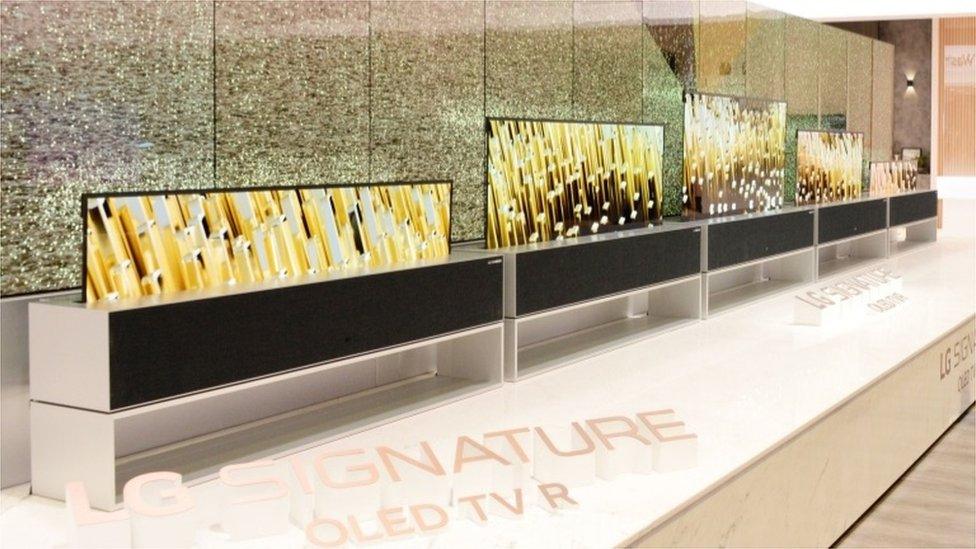
The premium TV features a soundbar built into its base so it can be used to play music when the display is hidden
The South Korean firm also showed off another TV that will compete with the fold-out model for flagship status: a 88in (224cm) model that was described as being the biggest OLED set to date.
Much of the presentation about it centred on its use of machine learning to finesse its picture quality.
That represented a tacit acknowledgement that there is little native 8K content available as yet, so users will be reliant on upgraded 4K and high definition imagery.
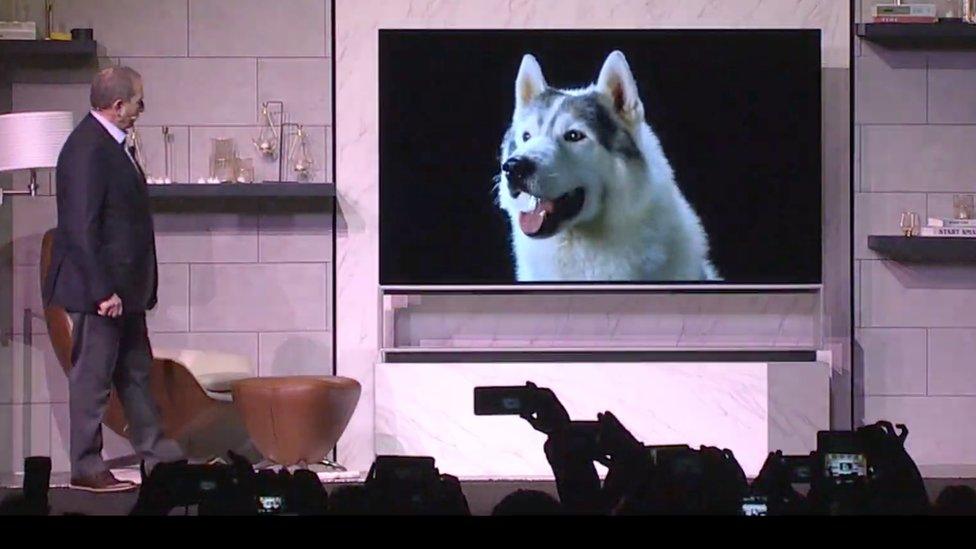
LG says its new 8K television will be the biggest OLED TV on the market
In addition, the firm said that its wider range of new smart TVs would include access to Amazon Alexa as well as Google's Assistant, external, which was added last year.
Relatively few devices have worked with both the two rival virtual assistants to date.
Speaker-maker Sonos has notably taken longer than expected to deliver on its promise of combining the two into a single device.
In LG's case, the two platforms will be accessed via its own ThinQ software rather than directly.
Its press conference showed a user commanding them via a TV remote control, suggesting that a different button press determined which of the two assistants was invoked.
Samsung's new TVs will also offer access to both Amazon and Google's platforms too, although it will prioritise its own smart assistant Bixby.
"I see it as an acceptance that there's a very large group of users already using Google and Amazon's AIs," remarked Paul Gagnon from the consultancy IHS Markit.
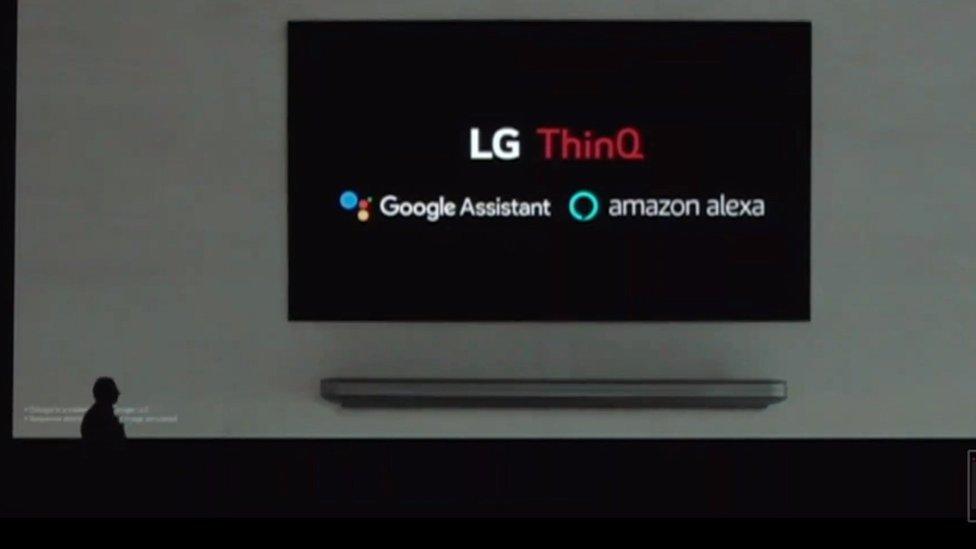
Alexa Skills and Google Assistant Actions can both be accessed via LG's ThinQ software
"It would be pretty hard for a company to stand in the way of that progress and not cut out potential buyers."
LG also said its TVs would be among the first to natively support Apple's AirPlay technology, allowing them to stream footage and audio from iPhones and iPads as well as be controlled by Siri.
LG dedicated much of the rest of its press conference to explaining how its household appliances could be made to anticipate their owners' wishes by allowing the company to monitor people's wider behaviour.
One example involved its ThinQ software offering to deploy a robot vacuum because it had detected its owner picking up another cleaning device.
Another involved the dishwasher ordering itself new detergent because it had run out.
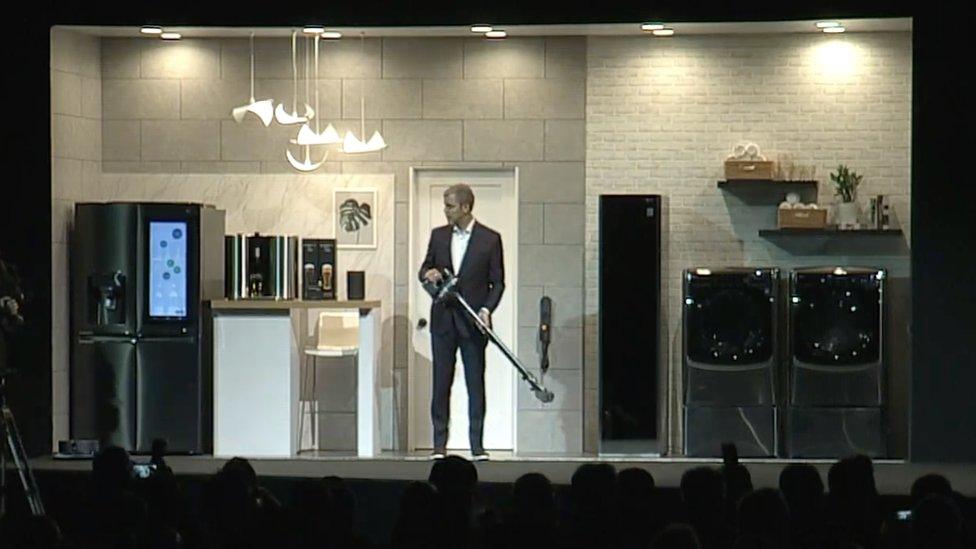
LG says its appliances will be able to anticipate owners' needs, if they opt in to having their habits analysed
In general, things ran much more smoothly than last year when the firm's US marketing chief David VanderWaal tried to demo a robot called Cloi, which repeatedly ignored his commands.
However, right at the end of the latest event the firm failed to mute his microphone, so that the last words heard were Mr VanderWaal saying: "That's a wrap - one glitch on the video."
One of the firm's displays failed to work as intended during the TV section of the press conference.
Read and watch all our CES coverage at bbc.com/ces2019
- Published7 January 2019
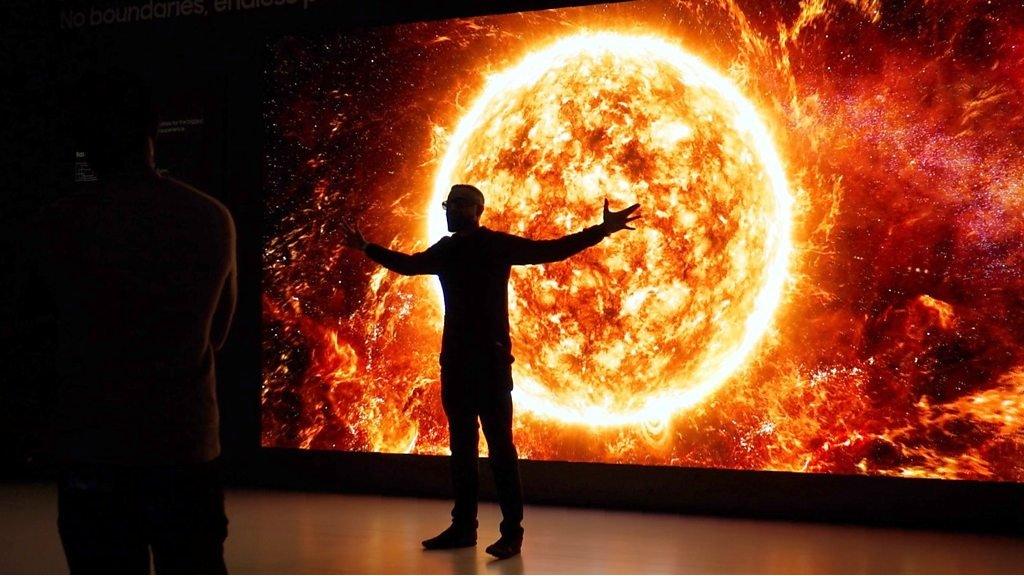
- Published7 January 2019
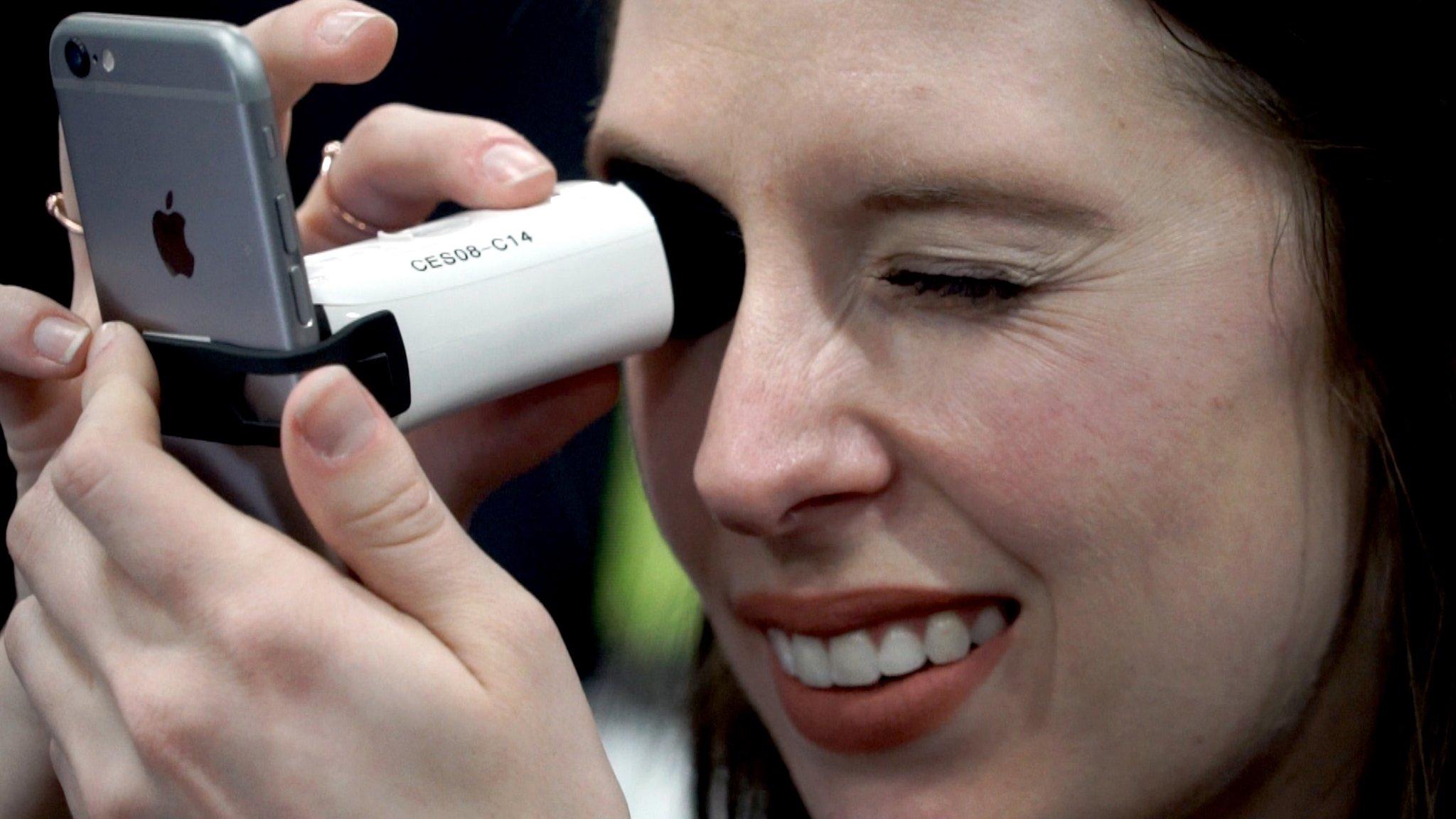
- Published6 January 2019
